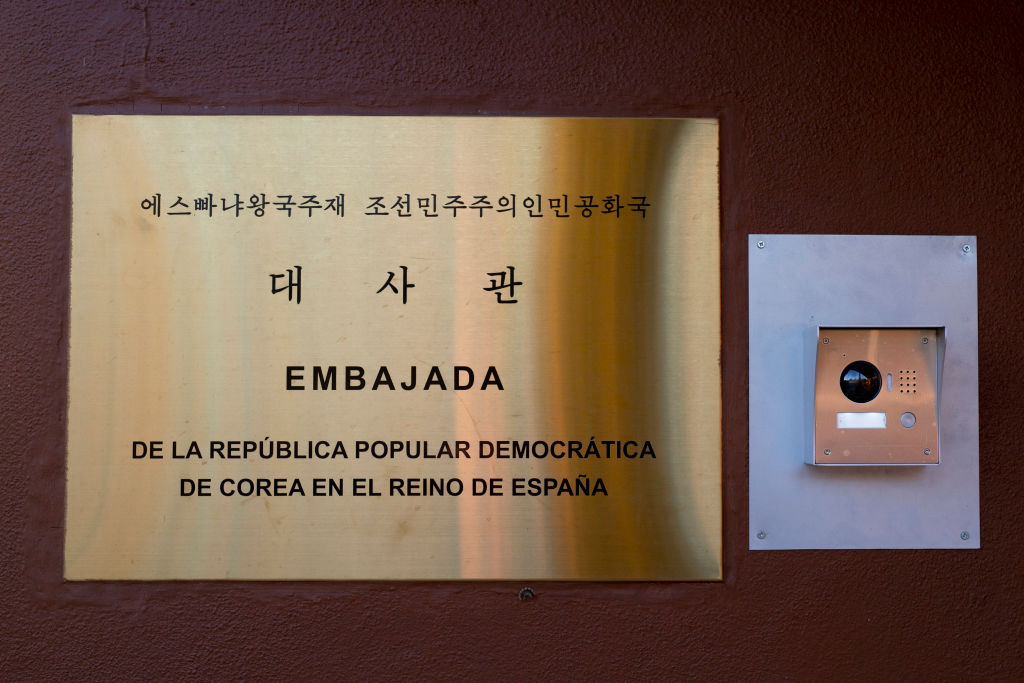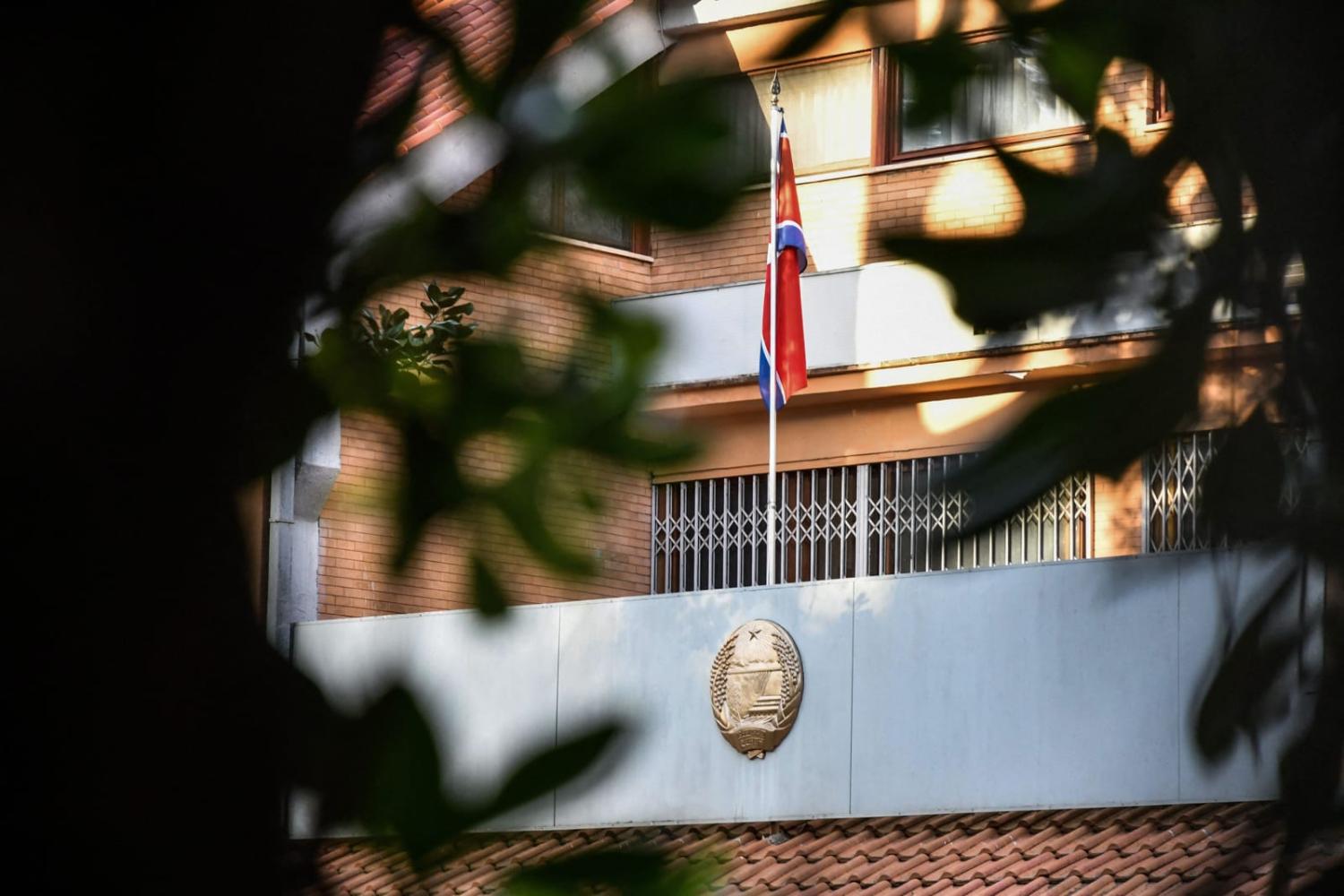North Korea started the new year with a bang, declaring it will no longer pursue unification with an “enemy” in South Korea. More cruise missile tests have set the region on edge, while North Korean weapons are appearing on Ukraine’s battlefield.
But Pyongyang has also sent signals in a different fashion, in deciding the diplomatic relationships the reclusive state will prioritise.
North Korea has closed various embassies in recent months, shrinking its already small diplomatic network. At the 9th Enlarged Plenary Meeting of the 8th Central Committee of the Workers’ Party of Korea, which took place from 26-30 December last year, Kim Jong-un announced plans for “further developing the relations with the anti-imperialist independent countries opposed to the hegemony strategy of the United States and the West under ever-changing international situation and waging a dynamic anti-imperialist joint action and struggle on an international scale.”
To makes sense of that mouthful, have a look at the embassies North Korea has shuttered around the world in recent months. In November, North Korea closed its diplomatic missions in Uganda, Angola, Nepal, Senegal, Bangladesh, Hong Kong, and Spain.
The South Korean government believes the North now operates 46 diplomatic missions abroad. Among the countries currently hosting North Korean diplomats are Egypt, Brazil, Mexico, Indonesia, Pakistan, Thailand, Italy, Sweden, Switzerland, Austria, Singapore, the Czech Republic, Belarus, and India.

Some analysts point to the embassy closures as proof that economic sanctions against the country are working, forcing North Korea to close foreign missions due to financial strain. Indeed, North Korea closed its embassy in Australia in 2008 citing “financial problems”. But the closures also may relate to the difficulty of continuing illegal activity abroad. North Korea has a history of using its diplomats to conceal illicit acts, such as smuggling tobacco, alcohol, narcotics, gold and ivory, and money laundering with the aim of bringing in much-needed foreign currency for the regime at home.
With limited resources, Pyongyang must carefully choose its priorities. Kim has made his immediate goals clear in recent weeks, emphasising the need to continue strengthening the country’s military force. His stark declaration rejecting unification with South Korea marks a particularly critical development, since it had been the North’s goal to reunify with the South ever since the division of the two countries.
“It is the final conclusion drawn from the bitter history of the inter-Korean relations that we cannot go along the road of national restoration and reunification,” Kim said in a 15 January speech. South Korea, he went on to claim, had “adopted as its state policy the all-out confrontation with our Republic, dreaming of the ‘collapse of our government’ and ‘unification by absorption’”. He flagged constitutional change to redefine South Korea as the North’s “invariable principal enemy”.
Three main conclusions can be drawn from North Korea’s recent foreign policy changes. First, that the US-led deterrence policy has fallen short as Pyongyang is acting bolder than ever. Second, that North Korea will likely double down its focus on its diplomatic alliances with major powers Russia and China. Third, that the possibility of military conflict, even war, breaking out on the peninsula is rapidly rising.
While it may be tempting to see the closure of various North Korean embassies as a positive sign, that the deterrence-focused approach is having its desired effect, this will by no means lead to the collapse of the government. Nor will it halt the country’s nuclear and other weapons programs. Pyongyang is simply matching its resources to its priorities.
With North Korea-Russia ties deepening significantly over the past two years, it makes sense for Pyongyang to place its diplomatic focus where it can get the highest return. Arms deals with Moscow may provide Pyongyang much-needed foreign currency, while Beijing remains, by far, North Korea’s greatest humanitarian and economic lifeline.
Moreover, although the Korean Peninsula technically remains at war and alarmist rhetoric concerning the security situation between the two Koreas is commonplace, things have truly taken a significant turn for the worse. With Pyongyang having abandoned – at least for the foreseeable future – the goal of unification and designating the South as its main enemy, tensions with Seoul will rise. South Korea, for its part, is holding regular military exercises with both the United States and Japan, as well as its own drills near borders with the North, so Pyongyang sees little reason to tone down its rhetoric.
With neither North nor South Korea showing any willingness to soften their approach to each other, the role of the United States becomes more important. Yet with its own presidential elections coming up in November, Washington is unlikely to pay the peninsula sustained attention absent a hot crisis. It will be up to the next president to conduct a thorough North Korea policy review and shift the strategy from one focused on containment and deterrence towards one prioritising engagement, arms control, and the lowering of military tensions. That’s where embassies and diplomats come in.

